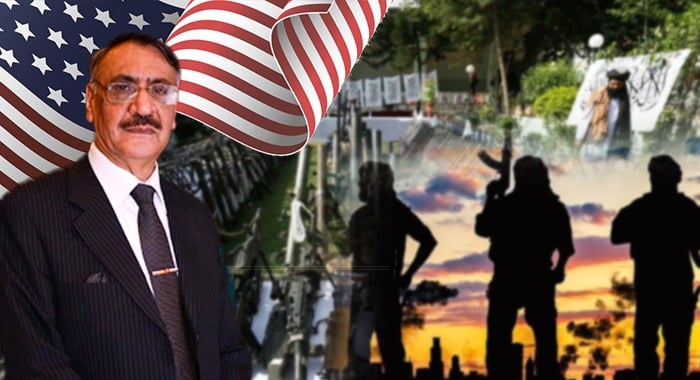Brig (R) Mehmood Shah
The recent attack in Surab, Balochistan where terrorists targeted a police station and several banks serves as a stark reminder of the persistent threat posed by non state actors operating with alarming sophistication. Though security forces responded swiftly and eliminated five terrorists, this incident underscores the need for renewed vigilance, regional cooperation, and internal consolidation to decisively defeat militancy.
Surab, located near Quetta, lies in a region that has historically remained vulnerable due to its proximity to conflict zones and porous borders. In such areas, readiness is not optional it is essential. Whenever an incident unfolds, rapid deployment of law enforcement must be prioritized to prevent militants from inflicting damage. Pakistan’s security forces have shown commendable capacity, but the evolving tactics of militants require a constant state of operational preparedness.
There is already a comprehensive operation underway in Balochistan aimed at neutralising militant groups. However, one cannot ignore the transnational nature of these outfits. Many of these elements operate from across the border in Afghanistan. Pakistan has conveyed its concerns to the Afghan authorities and also engaged with other regional stakeholders, including Iran and the United States, to ensure their soil is not used against Pakistan. These diplomatic efforts must now translate into action.
A major concern is the inflow of sophisticated weaponry into the hands of militant groups. After the withdrawal of U.S. forces from Afghanistan, military grade equipment worth approximately $7 billion was left behind. This includes night-vision devices, armoured vehicles, and advanced weapons systems. These assets, once intended for an organised military, have now entered the black market and are being procured by insurgents. The situation is serious—so much so that even former U.S. President Donald Trump called for the return of these weapons.
For Pakistan, this presents a grave risk. While Pakistan possesses similar technologies, their unchecked circulation on the open market and their acquisition by small militant outfits is deeply concerning. If required, Pakistan can extend its expertise to assist international efforts in controlling the flow of such weaponry.
A related tactic increasingly employed by militant groups is the use of quad-copter drones commercially available and low cost devices often used at weddings or for recreational photography. These drones can be adapted to drop small explosives. While their destructive capacity is limited, their psychological impact and potential for targeted strikes cannot be underestimated. Much speculation surrounds the source of funding for such technologies, with India frequently cited. However, the accessibility of these tools on the open market is a critical factor to consider.
There are signs of change, however. The Afghan Taliban government has reportedly imposed restrictions on the movement of Tehreek-e-Taliban Pakistan (TTP) elements. If this policy is implemented consistently and militants are denied safe havens, it will be a decisive step forward. Over time, such restrictions can lead to the dismantling of groups like the TTP and Baloch Liberation Army (BLA), provided regional actors remain firm in their commitments.
Still, no counter-terrorism effort can succeed without public support. Thankfully, the people of Pakistan have never endorsed these extremist groups. Even in the tribal areas where some call for the return of the old FCR system the overwhelming desire is for development, integration, and peace. The real issue in these areas is connectivity. Infrastructure remains severely underdeveloped. In places like Kurram, it can take three days for a patient to reach a hospital in Peshawar due to poor road conditions. The construction of roads and enhancement of mobility will naturally lead to progress, education, and economic stability weakening the influence of militant propaganda.
The question arises: why are Balochistan and Khyber Pakhtunkhwa repeatedly targeted? The answer lies in the past. When military operations intensified in Pakistan, many of these militants fled to Afghanistan. Now weakened and fragmented, they attempt to return. But Pakistan’s position is clear they must face trial for their crimes. This, however, is not without complications. In tribal cultures, victims’ families may seek revenge, and the state cannot always guarantee the safety of returning militants. As a result, reconciliation efforts become fraught with risk, and repatriation is often unfeasible.
Justice, nonetheless, will be served. Even if delayed, accountability is inevitable. History is proof there are cases from the British colonial era where property was seized and legal action taken even after ninety years. Pakistan must adopt the same long-term approach. The rule of law must prevail.
Finally, while the army will always be ready to support, the primary responsibility of maintaining internal security must rest with a professional, empowered, and well resourced police force. The police, if properly supported, can manage law enforcement even in the most volatile areas. Military involvement should be limited to exceptional circumstances.
The Surab incident is not just another entry in the long list of terror attacks it is a wake-up call. Pakistan must respond with clarity, coordination, and courage. From international diplomacy to local policing, from technological countermeasures to public engagement, every tool must be employed. Only then can Pakistan turn the tide decisively against terror and move towards lasting peace.





